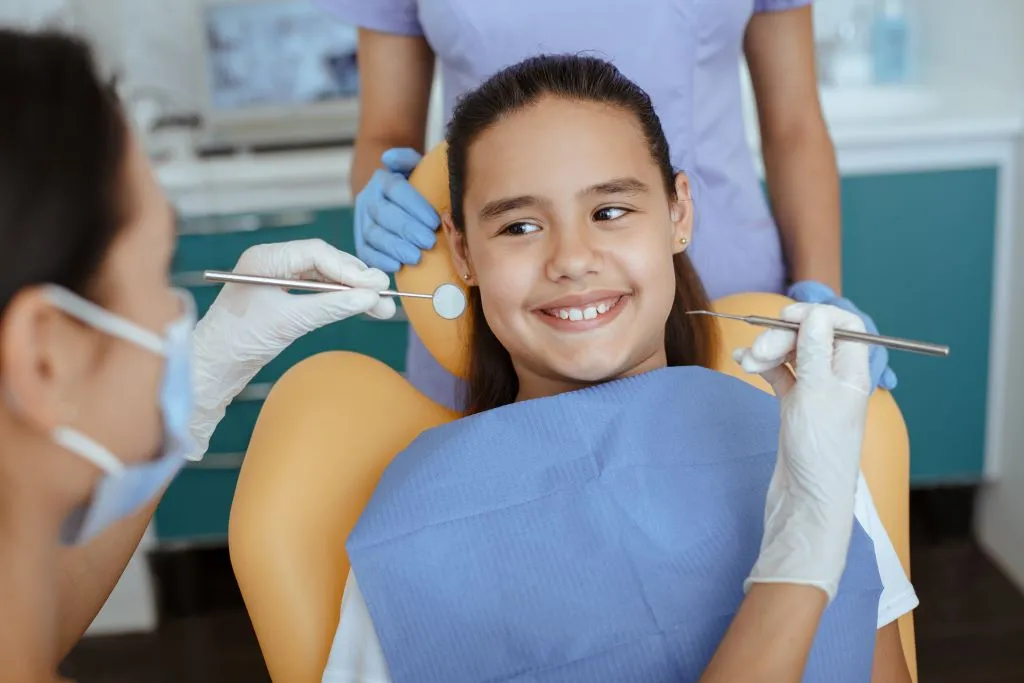
Essential Dental Care for Kids
Ensuring optimal dental care for childrens is not only essential for their oral health but also contributes significantly to their overall well-being. In this comprehensive guide, we delve into the importance of teeth cleaning, dental visits, prevention of tooth decay, and age-specific oral hygiene practices to empower parents in nurturing their children’s dental health.
1. Why Is Teeth Cleaning Important in Children?
Teeth cleaning plays a pivotal role in maintaining children’s oral health by removing food particles, bacteria, and plaque that accumulate on teeth surfaces. Effective cleaning prevents the formation of cavities, gum disease, and other oral health issues, ensuring a bright and healthy smile.
2. How Can Kids Keep Their Teeth Clean?
Children can maintain clean teeth by establishing consistent oral hygiene habits, including brushing twice daily with fluoride toothpaste and flossing regularly. Parents should supervise brushing sessions to ensure thorough cleaning, especially for younger children who may need assistance.
3. When Should Kids Go to the Dentist?
Early dental visits are crucial for children’s dental health, starting as early as their first birthday or within six months after the eruption of their first tooth. Regular dental check-ups enable early detection of dental problems, preventive care, and guidance on proper oral hygiene practices.
4. What Happens at Dentist Visits?
During dental visits, dentists conduct comprehensive examinations of children’s teeth, gums, and oral structures. They perform professional cleanings, apply fluoride treatments, and provide education on oral hygiene and dietary habits. These visits also offer opportunities to address any concerns and instill positive dental experiences.
5. Early Childhood Tooth Decay (ECTD):
Early childhood tooth decay, often associated with prolonged exposure to sugary liquids or poor oral hygiene, can lead to cavities and tooth loss. Parents can prevent ECTD by limiting sugary snacks and drinks, promoting healthy eating habits, and practicing good oral hygiene from infancy.
6. Prevention of Tooth Decay:
Preventing tooth decay involves a multifaceted approach, including proper oral hygiene, balanced nutrition, and routine dental care. Encouraging children to consume water instead of sugary beverages, incorporating tooth-friendly foods into their diet, and establishing consistent brushing and flossing routines are key preventive measures.
7. Cleaning Your Child’s Mouth: Age-Specific Guidelines
Each stage of childhood requires tailored oral hygiene practices:
- 0-6 Months Old: Gently clean an infant’s gums with a soft, damp cloth after feeding to remove milk residue and bacteria.
- 6 Months – 3 Years Old: Introduce brushing with a small, soft-bristled toothbrush and a smear of fluoride toothpaste. Encourage spitting out excess toothpaste to minimize swallowing.
- 3-6 Years Old: Use a pea-sized amount of fluoride toothpaste and supervise brushing, ensuring coverage of all tooth surfaces. Teach proper brushing techniques, emphasizing circular motions.
- 7-12 Years Old: Continue supervising brushing and flossing routines, gradually transitioning to independent oral care habits. Emphasize the importance of reaching all teeth surfaces and maintaining consistency in oral hygiene practices.
8. Teething and Baby Teeth:
Teething can be a challenging phase for both children and parents, marked by discomfort and irritability. Providing teething toys or chilled teething rings can help soothe sore gums, while regular dental check-ups allow dentists to monitor the eruption of baby teeth and address any concerns promptly.
9. Eruption of Adult Teeth:
Around the age of 6-7, children begin to lose their primary teeth as permanent teeth emerge. This transition period requires vigilant oral care to ensure proper alignment and development of adult teeth. Regular dental visits and adherence to oral hygiene practices are crucial during this phase.
By prioritizing dental care and adopting proactive measures, parents can lay the foundation for lifelong oral health in their children. Empowered with knowledge and guidance on age-appropriate dental practices, families can navigate the journey of dental care with confidence, promoting healthy smiles and bright futures for their children.
 Elvallenato.ca
Elvallenato.ca











